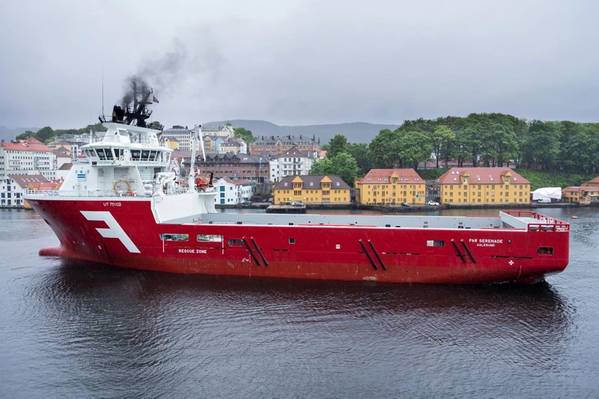
In last month’s column, I focused on how the Covid-19 situation had affected various offshore operating regions around the globe. In this article, we shall focus on Europe, with attention paid to Norway and Solstad Offshore’s recently announced financial restructuring.
Norwegians feeling the pressure…
All parties within the offshore sphere, from oil majors right down to small service providers are feeling the effects of the COVID-19 pandemic.
Offshore vessel owners especially are feeling the pinch, none more so than the Norwegians.
Even before the events that have unfolded in the last two months, many were under significant financial pressure and scrutiny from their lenders.
For example:
Solstad
Solstad took a c. USD 100 mil write down on their fleet due to a forced revaluation request in early 2019. Throughout the year they faced constant demands for payment of their NOK 1 billion senior unsecured open bond and subsequently agreed on postponements. Finally, they were forced to sell their DESS stake to John Frederiksen.
Havila
In February 2019, Havila took an impairment hit of USD 99 million, after which two nonperforming vessels - the Havila Commander and Havila Crusader - were forcefully marketed for sale under bank pressure.
Finally, just before the new year, the Norwegian OSV owner revealed its equity was negative USD 105 mil and financial restructuring talks continued.
DOF
DOF warned in late May 2019 that it was unlikely to be able to pay back some of its bank loans and be in breach of covenants. Then In the third quarter of 2019, it posted a loss of USD 232 million as impairments hit its fleet. DOF also signaled that it was working on a long-term refinancing solution. As of April 2020, DOF Group had been forced to ask for more help from banks and bondholders in the form of debt freezes and emergency loans.
It finally happened – Solstad Offshore
You can only kick the can down the road for so long, and a lethal cocktail of COVID-19 and a sharp reduction in oil price will ultimately force any company's already weakened hand.
This is exactly the position Solstad Offshore found itself in, and on March 31, the company announced it had entered an official formal restructuring process and the banks and bondholders had taken over the company.
Solstad Offshore Fleet Including Pipe Layers - 31/03/2020 | |||
Vessel Type | Number of Vessels | Average Age | VV Value USD m |
OSV | 97 | 11.9 | $653.44 |
OCV | 27 | 12.0 | $849.49 |
Grand Total | 124 | 11.9 | $1,502.93 |
Table 1: Solstad fleet value breakdown
*The above figures are fair market values and do not extend to vessels that are taken in on bareboat charter.
Forced removals
For an already oversupplied market and one where a number for other owners are trying to sell off non-core tonnage, the last thing the market needs is more sales candidates.
However, a condition of Solstad’s restructuring deal is that they must remove 37 vessels. Although the exact vessels to be sold are not known, it will most likely be the laid up, older smaller units.
Utilizing VesselsValue Fleet Database and recency of AIS function, we can filter PSVs, AHTS and OCVs within the Solstad fleet that have not signalled for 1-8 weeks or 8 week or greater, that is those that are in long term layup. These 33 vessels could represent a large portion of the possible 37 sales candidates.
See table 2.
Solstad Offshore’s Inactive Fleet | |||
Vessel Type | Number of Vessels | VV Value USD m | Demo Value USD m |
PSV | 17 | $62.1 | $10.5 |
AHTS | 15 | $41.3 | $14.3 |
OCV | 2 | $17.7 | $2.9 |
Table 2: Inactive vessel breakdown within the Solstad fleet.
*Demolition value is based on vessels LDT* current price for steel Indian Subcontinent
* VesselsValue assumes vessel is in seaworthy condition and fair survey position.
Best case scenario
The total market value for the 34 vessels is USD 121.1 million; this could be considered ‘best case scenario’. However, most of these vessels are due their special survey and have been in long-term layup. This may have a negative impact on their final sale value.
Worst case Scenario
Total demolition value for the 34 vessels is USD 27.7 million; this can be considered the ‘worst-case’ scenario.
However, this price is based on delivery to the Indian subcontinent, and to note, many of these vessels could be disposed of in European or Turkish demolition yards, which typically pay less compared to the subcontinent.



